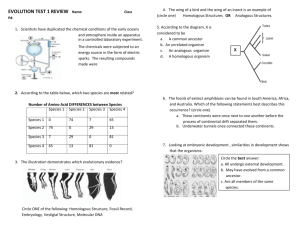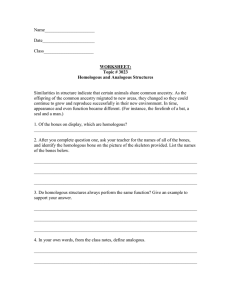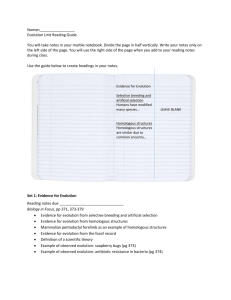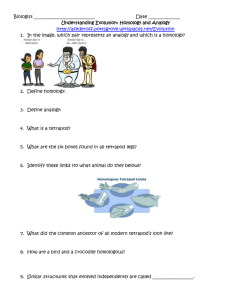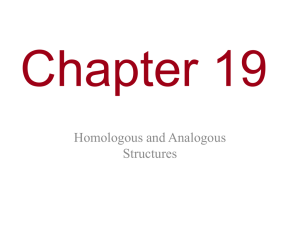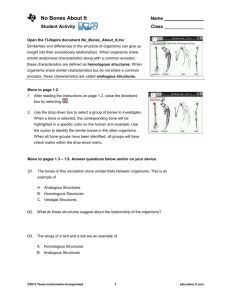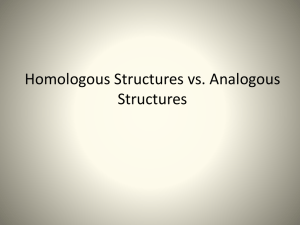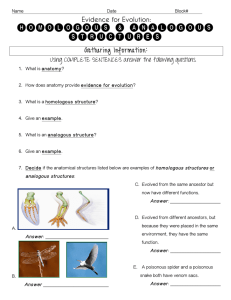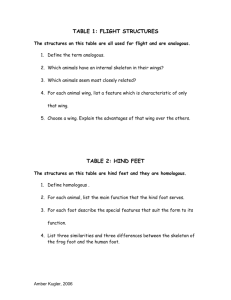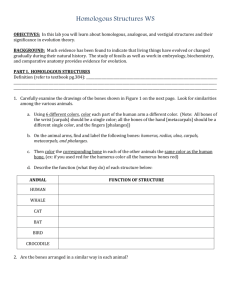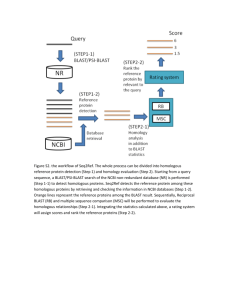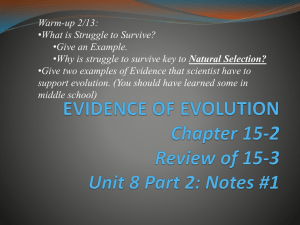Objective: Students will distinguish between homologous and
advertisement
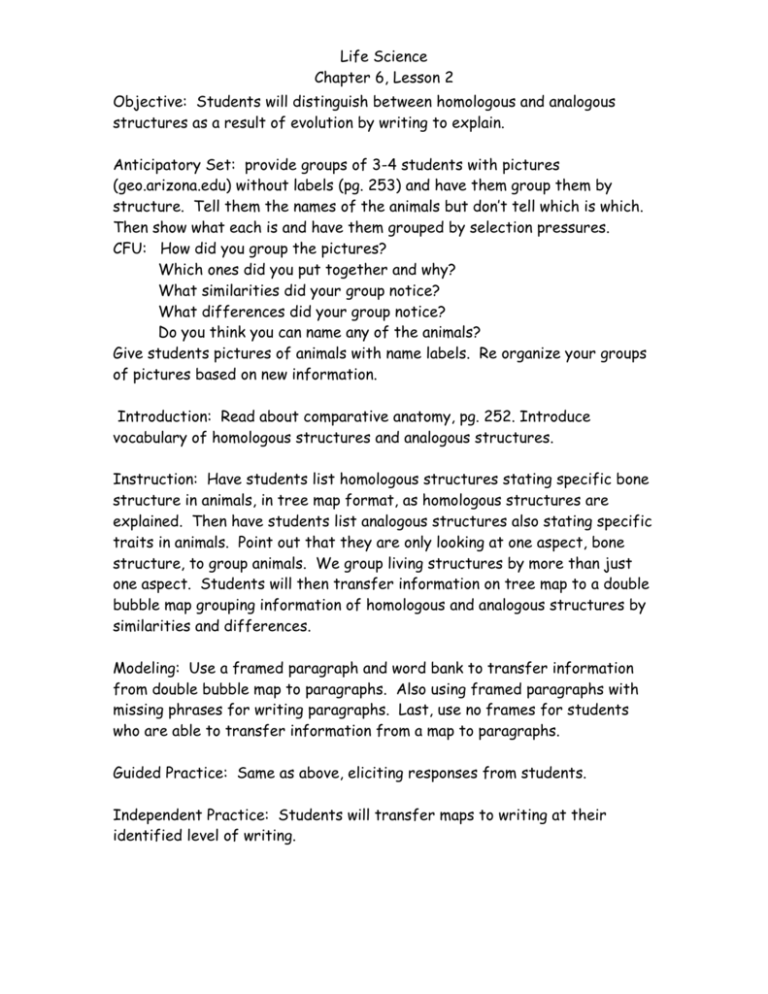
Life Science Chapter 6, Lesson 2 Objective: Students will distinguish between homologous and analogous structures as a result of evolution by writing to explain. Anticipatory Set: provide groups of 3-4 students with pictures (geo.arizona.edu) without labels (pg. 253) and have them group them by structure. Tell them the names of the animals but don’t tell which is which. Then show what each is and have them grouped by selection pressures. CFU: How did you group the pictures? Which ones did you put together and why? What similarities did your group notice? What differences did your group notice? Do you think you can name any of the animals? Give students pictures of animals with name labels. Re organize your groups of pictures based on new information. Introduction: Read about comparative anatomy, pg. 252. Introduce vocabulary of homologous structures and analogous structures. Instruction: Have students list homologous structures stating specific bone structure in animals, in tree map format, as homologous structures are explained. Then have students list analogous structures also stating specific traits in animals. Point out that they are only looking at one aspect, bone structure, to group animals. We group living structures by more than just one aspect. Students will then transfer information on tree map to a double bubble map grouping information of homologous and analogous structures by similarities and differences. Modeling: Use a framed paragraph and word bank to transfer information from double bubble map to paragraphs. Also using framed paragraphs with missing phrases for writing paragraphs. Last, use no frames for students who are able to transfer information from a map to paragraphs. Guided Practice: Same as above, eliciting responses from students. Independent Practice: Students will transfer maps to writing at their identified level of writing. Life Science Chapter 6, Lesson 2 Close: Evolution tree map in groups using pictures given to them. (Evolutionary maps will have been discussed in lesson 1.) Life Science Chapter 6, Lesson 2 QuickTime™ and a decompressor are needed to see this picture.
